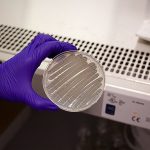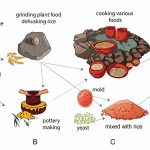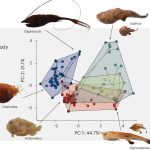Hidden worlds beneath the Arctic: Mysterious ocean vents offer clues to alien life
A groundbreaking study has revealed unexpected diversity in hydrothermal vent formations deep beneath the Arctic Ocean.
These findings shed light on the mysterious origins of...
How fungi create powerful medicinal molecules
For nearly a century, fungi have been a treasure trove of life-saving medicines.
From Alexander Fleming’s discovery of penicillin in 1928 to treatments for cholesterol,...
How desert plants could revolutionize clean energy
Scientists have discovered a more eco-friendly way to produce energy by using plants that thrive in dry, harsh environments like deserts.
These drought-tolerant plants, also...
Scientists discover 10,000-year-old rice beer in China
Researchers have uncovered traces of rice beer dating back 10,000 years at the Shangshan site in Zhejiang Province, China.
This discovery, published in the Proceedings...
Has the universe been designed to support life? Now we have a way to...
The anthropic principle states that the fundamental parameters of the Universe such as the strength of the fundamental forces, have been finely tuned to...
Scientists find why men may have shorter lifespans
Researchers at the University of Virginia have uncovered a discovery that may help explain why men generally live shorter lives than women.
Their study, led...
Deep-sea wonders: How anglerfish evolve and thrive against the odds
Anglerfish are some of the most fascinating creatures in the deep sea, known for their glowing lures and bizarre shapes.
A new study by researchers...
Tiny fossils in New Zealand reveal secrets of ancient forest life
Scientists have discovered rare, tiny whitefly fossils in New Zealand, offering a fascinating glimpse into the country’s ancient forests.
These delicate fossils, just 1.5mm in...
Antarctica has gotten 10 times greener in 35 years
Our satellites are dispassionate observers of Earth’s climate change.
From their vantage point they watch as pack ice slowly loses its hold on polar oceans,...
Minerals in hot springs performed a key chemical reaction for early life on Earth
One of the biggest scientific mysteries is where life on Earth started.
Research has often focused on the role of deep-sea hydrothermal vents—those towering structures...










